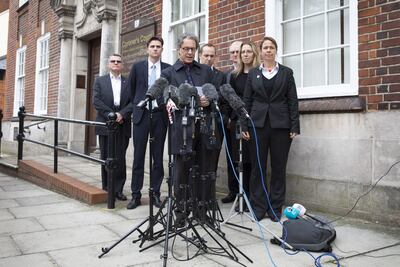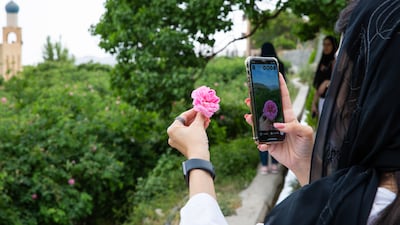A decade ago it was fashionable to talk about the social media platform Facebook as if it were a country. Commentators measured its active user base against the giant and growing populations of China and India to convey some sense of its scale, reach and power. Back then Facebook had around 850 million users, now it is nearer 3 billion people. Both China and India, by comparison, are home to around 1.4bn people each today.
With such vast and sudden “population” explosions on social media, we worried about what these platforms were doing with all the data they were harvesting. Despite those serious concerns, social media was also viewed as a positive agent of change. The role that Facebook, Twitter and others played in the 2011 Arab uprisings in gathering young people together was regularly cited as an example of the powerful catalyst these platforms could be.
In those days, Facebook’s log-in page featured the “it’s free and always will be” strapline. The phrase was key to explaining the platform’s popularity. The quid pro quo, such as it was, lay somewhere between being able to use a dazzling application without cost and surrendering some personal data to big tech.
Active users across all social media platforms in 2022 number closer to 5bn people, now equivalent to the entire population of Asia, and the intervening years have turned the so-called digital town square into a challenging space. The quid pro quo seems more inequitable than ever.
Part of that is because the combination of social media and smartphones has made us into discreet, addictive and private beings. It is possible to spend hours on these platforms with an algorithm serving you an inexhaustible feed of machine-generated content.
Online giant Amazon’s recommendation algorithm famously started outperforming human editor’s picks a long time ago because it used a filtering system that was based on links between products rather than customers. It learnt that if you were searching for a copy of, say, F Scott Fitzgerald’s The Great Gatsby, there was a good chance you’d also be interested in works by Ernest Hemingway. It didn’t have to understand why customers might be interested in both authors, it just had to know that there was a correlation between products by those authors.
It has become too easy to be caught in an echo chamber that reinforces our own biases and disappearing down dangerous trap doors
Similarly, social media doesn’t have to interrogate why I may be searching for and interested in content about a particular subject, they just have to feed that need regardless of whether it is good for me or not.
Some people used to think social media would allow all of us to be exposed to a diverse range of opinions, but it has become far too easy to be caught in an echo chamber, consuming, liking and commenting on the posts that reinforce our own biases and disappearing down dangerous trap doors with no easy way out. The separation between our digital personalities and our real one seems to widen every year.
While user bases continue to grow across social media platforms – and TikTok now captures vast tracts of the attention economy – the inner workings of the technology need rethinking and rebuilding.
A year ago, Frances Haugen, a former Facebook product manager turned whistleblower, told a US Congressional hearing that the platform’s algorithms promote posts with high levels of engagement, often pushing harmful content towards users. Facebook vigorously denied the accusation. Founder Mark Zuckerberg said the allegations of preferencing profiteering over well-being were “just not true”. Ms Haugen has since joined the new group, Council for Responsible Social Media, which launched this week and is pressing for urgent change.
Last month, an inquest in the UK ruled that the death for teenager Molly Russell in November 2017 happened after exposure to the negative effects of online content. The inquest heard how Molly, who was 14 years old when she died, saved, shared or liked 16,300 posts on Instagram in the six-month period before her death. Of those, 2,100 were depression, self-harm or suicide-related. Her case is likely to provide the springboard for action in the UK.
Any proposed legislation will need careful calculation and application. Too strict and it becomes unworkable, too lenient and it is toothless.
So how do you realistically govern a digital territory now inhabited by almost five billion people?
Beyond broad actions that prefer steady hands and good faith, a prescription for change requires the following.
The platforms themselves need to further develop their internal audit and oversight procedures. Self-regulation may sound like a terrible oxymoron, but it may also be the best way forward as long as it champions prevention and solutions.
The platforms need to be more transparent and accountable with users about why content is being served and swift to address inappropriate or harmful posts.
The algorithms need rebuilding and the machine-learning needs to understand why as well as what its users are interested in.
And finally, safeguarding legislation must be drafted with purpose rather than symbolism.
Stats at a glance:
Cost: 1.05 billion pounds (Dh 4.8 billion)
Number in service: 6
Complement 191 (space for up to 285)
Top speed: over 32 knots
Range: Over 7,000 nautical miles
Length 152.4 m
Displacement: 8,700 tonnes
Beam: 21.2 m
Draught: 7.4 m
Uefa Nations League: How it works
The Uefa Nations League, introduced last year, has reached its final stage, to be played over five days in northern Portugal. The format of its closing tournament is compact, spread over two semi-finals, with the first, Portugal versus Switzerland in Porto on Wednesday evening, and the second, England against the Netherlands, in Guimaraes, on Thursday.
The winners of each semi will then meet at Porto’s Dragao stadium on Sunday, with the losing semi-finalists contesting a third-place play-off in Guimaraes earlier that day.
Qualifying for the final stage was via League A of the inaugural Nations League, in which the top 12 European countries according to Uefa's co-efficient seeding system were divided into four groups, the teams playing each other twice between September and November. Portugal, who finished above Italy and Poland, successfully bid to host the finals.
UPI facts
More than 2.2 million Indian tourists arrived in UAE in 2023
More than 3.5 million Indians reside in UAE
Indian tourists can make purchases in UAE using rupee accounts in India through QR-code-based UPI real-time payment systems
Indian residents in UAE can use their non-resident NRO and NRE accounts held in Indian banks linked to a UAE mobile number for UPI transactions
TRAP
Starring: Josh Hartnett, Saleka Shyamalan, Ariel Donaghue
Director: M Night Shyamalan
Rating: 3/5
UAE players with central contracts
Rohan Mustafa, Ashfaq Ahmed, Chirag Suri, Rameez Shahzad, Shaiman Anwar, Adnan Mufti, Mohammed Usman, Ghulam Shabbir, Ahmed Raza, Qadeer Ahmed, Amir Hayat, Mohammed Naveed and Imran Haider.
Film: Raid
Dir: Rajkumar Gupta
Starring: Ajay Devgn, Ileana D'cruz and Saurabh Shukla
Verdict: Three stars
Abaya trends
The utilitarian robe held dear by Arab women is undergoing a change that reveals it as an elegant and graceful garment available in a range of colours and fabrics, while retaining its traditional appeal.
Five famous companies founded by teens
There are numerous success stories of teen businesses that were created in college dorm rooms and other modest circumstances. Below are some of the most recognisable names in the industry:
- Facebook: Mark Zuckerberg and his friends started Facebook when he was a 19-year-old Harvard undergraduate.
- Dell: When Michael Dell was an undergraduate student at Texas University in 1984, he started upgrading computers for profit. He starting working full-time on his business when he was 19. Eventually, his company became the Dell Computer Corporation and then Dell Inc.
- Subway: Fred DeLuca opened the first Subway restaurant when he was 17. In 1965, Mr DeLuca needed extra money for college, so he decided to open his own business. Peter Buck, a family friend, lent him $1,000 and together, they opened Pete’s Super Submarines. A few years later, the company was rebranded and called Subway.
- Mashable: In 2005, Pete Cashmore created Mashable in Scotland when he was a teenager. The site was then a technology blog. Over the next few decades, Mr Cashmore has turned Mashable into a global media company.
- Oculus VR: Palmer Luckey founded Oculus VR in June 2012, when he was 19. In August that year, Oculus launched its Kickstarter campaign and raised more than $1 million in three days. Facebook bought Oculus for $2 billion two years later.
Engine: 80 kWh four-wheel-drive
Transmission: eight-speed automatic
Power: 402bhp
Torque: 760Nm
Price: From Dh280,000
The bio
Date of Birth: April 25, 1993
Place of Birth: Dubai, UAE
Marital Status: Single
School: Al Sufouh in Jumeirah, Dubai
University: Emirates Airline National Cadet Programme and Hamdan University
Job Title: Pilot, First Officer
Number of hours flying in a Boeing 777: 1,200
Number of flights: Approximately 300
Hobbies: Exercising
Nicest destination: Milan, New Zealand, Seattle for shopping
Least nice destination: Kabul, but someone has to do it. It’s not scary but at least you can tick the box that you’ve been
Favourite place to visit: Dubai, there’s no place like home
Greatest of All Time
Starring: Vijay, Sneha, Prashanth, Prabhu Deva, Mohan
What are NFTs?
Are non-fungible tokens a currency, asset, or a licensing instrument? Arnab Das, global market strategist EMEA at Invesco, says they are mix of all of three.
You can buy, hold and use NFTs just like US dollars and Bitcoins. “They can appreciate in value and even produce cash flows.”
However, while money is fungible, NFTs are not. “One Bitcoin, dollar, euro or dirham is largely indistinguishable from the next. Nothing ties a dollar bill to a particular owner, for example. Nor does it tie you to to any goods, services or assets you bought with that currency. In contrast, NFTs confer specific ownership,” Mr Das says.
This makes NFTs closer to a piece of intellectual property such as a work of art or licence, as you can claim royalties or profit by exchanging it at a higher value later, Mr Das says. “They could provide a sustainable income stream.”
This income will depend on future demand and use, which makes NFTs difficult to value. “However, there is a credible use case for many forms of intellectual property, notably art, songs, videos,” Mr Das says.
The more serious side of specialty coffee
While the taste of beans and freshness of roast is paramount to the specialty coffee scene, so is sustainability and workers’ rights.
The bulk of genuine specialty coffee companies aim to improve on these elements in every stage of production via direct relationships with farmers. For instance, Mokha 1450 on Al Wasl Road strives to work predominantly with women-owned and -operated coffee organisations, including female farmers in the Sabree mountains of Yemen.
Because, as the boutique’s owner, Garfield Kerr, points out: “women represent over 90 per cent of the coffee value chain, but are woefully underrepresented in less than 10 per cent of ownership and management throughout the global coffee industry.”
One of the UAE’s largest suppliers of green (meaning not-yet-roasted) beans, Raw Coffee, is a founding member of the Partnership of Gender Equity, which aims to empower female coffee farmers and harvesters.
Also, globally, many companies have found the perfect way to recycle old coffee grounds: they create the perfect fertile soil in which to grow mushrooms.
Infiniti QX80 specs
Engine: twin-turbocharged 3.5-liter V6
Power: 450hp
Torque: 700Nm
Price: From Dh450,000, Autograph model from Dh510,000
Available: Now
Killing of Qassem Suleimani
The five pillars of Islam





